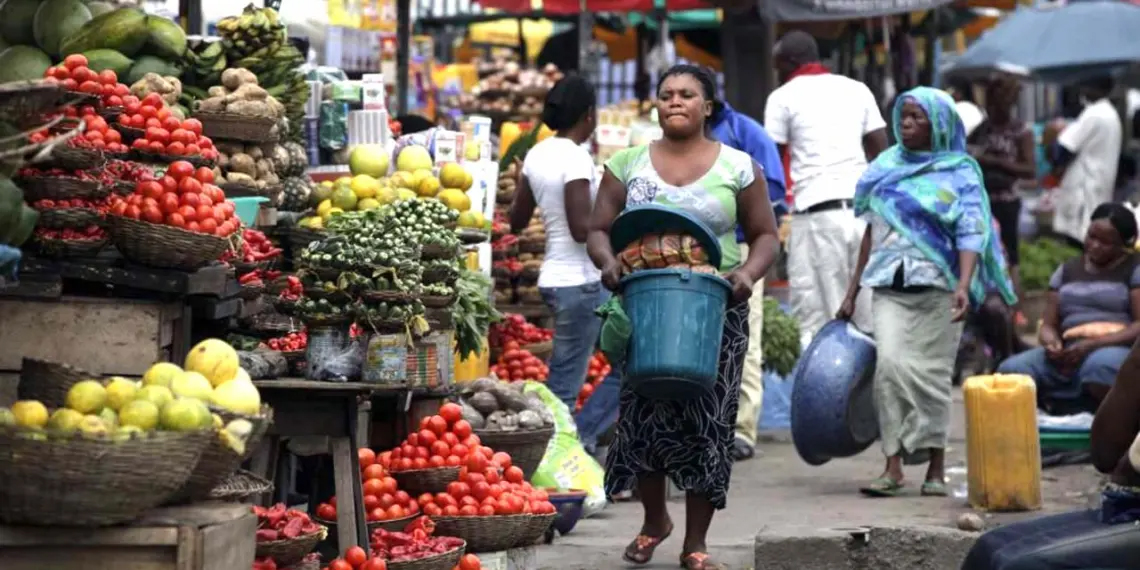The suspension of Senator Natasha Akpoti-Uduaghan from the 10th Senate has formally run its course, but the lawmaker representing Kogi Central is still being denied entry into the chambers.
The development has sparked outrage from opposition voices and civil society groups, who accuse Senate President Godswill Akpabio of undermining both constitutional rights and judicial authority. They argue that keeping Kogi Central without representation for over six months not only violates the rights of her constituents but also deepens public distrust in Nigeria’s democracy.
The drama over her suspension has entered a tense new phase, with the National Assembly shutting the door on her attempt to resume duties after claiming her six-month punishment had run its course.
On September 4, 2025, the outspoken lawmaker representing Kogi Central formally notified the Clerk of the National Assembly of her intention to return to plenary and reclaim her office. For Natasha, her suspension—imposed on March 6, 2025—had expired by operation of time.
But the reply she received was unequivocal: “You cannot return yet.”
In a letter signed by Acting Clerk, Dr. Yahaya Danzaria, the National Assembly declared that the matter remains before the Court of Appeal, making her suspension still “alive” until the judiciary concludes.
“The matter remains sub judice, and until the judicial process is concluded and the Senate formally reviews the suspension in light of the court’s pronouncement, no administrative action can be taken by this office to facilitate your resumption,” the letter stated.
The Clerk further assured that she would be duly notified of the Senate’s final position once the appellate process is resolved.
Unmoved, Akpoti-Uduaghan insists she is entitled to resume. In her own letter, the senator argued that the Senate has no constitutional grounds to extend her punishment beyond six months.
“The suspension was for a definite period of six months, not indefinite. Upon expiration, my full rights and privileges as a Senator are automatically restored,” she wrote.
She further demanded immediate access to her senatorial office, pointing to pressing constituency matters, pending committee assignments, and preparation for the Senate’s return from recess.
The confrontation traces back to a stormy plenary in March, when Natasha locked horns with Senate President Godswill Akpabio over seating arrangements. What began as a spat quickly snowballed into disciplinary action, with the Senate handing her a six-month suspension.
Refusing to accept the punishment, she headed to court. In July, the Federal High Court delivered a mixed verdict—branding her suspension “excessive and unconstitutional” but affirming the Senate’s right to discipline its members. Both sides appealed, taking the battle to the Court of Appeal.
Beyond the personal clash, the controversy has reopened a wider debate: should lawmakers have the power to suspend elected representatives, effectively silencing constituencies for months at a time?
Civil society groups warn that prolonged suspensions erode democracy and deny citizens their right to representation. Legal analysts also note that the appellate court’s eventual ruling could redraw the boundaries between parliamentary privilege and constitutional rights.
Reacting to the development, the National Secretary of the Inter-Party Advisory Council (IPAC), High Chief Peter Ameh, accused the National Assembly of undermining democracy by keeping Kogi Central without representation for more than six months following the suspension of Senator Natasha Akpoti-Uduaghan.
Speaking in Abuja, Ameh said the Senate has acted like “a court of leadership” rather than a legislative chamber, ignoring constitutional principles and the rights of citizens to representation. He argued that the suspension timeline had expired and that the Senate was using the excuse of ongoing litigation to evade its own rules.
“It is embarrassing that our democracy is being hijacked by those who do not understand its core values—freedom of expression and the right of every constituency to be represented,” Ameh said. “The Senate President and every Senator are equals under the Constitution. To use the authority of the chamber to settle personal scores is a dangerous abuse of power.”
He also faulted the judiciary for failing to give swift judgment on the matter, accusing the courts of enabling “tutelary tyranny” by refusing to set a strong precedent against the suspension of elected lawmakers by their peers.
Ameh further condemned reported disruptions of opposition rallies, including that of the African Democratic Congress (ADC) in Lagos, alleging that the ruling All Progressives Congress (APC) was working to silence dissent and edge Nigeria towards a one-party state.
“The APC is afraid of 2027 because Nigerians have rejected them. If they truly believe they can win, why attack opposition parties in Lagos and Kebbi? The ballot will be a referendum on their leadership, and the people will resist any attempt to suppress opposition voices,” he declared.
Ameh called on the Senate to immediately lift the suspension on Senator Natasha Akpoti-Uduaghan, warning that continued suppression of opposition lawmakers and political parties would further damage Nigeria’s democracy.
Reacting, the Labour Party (LP) has said the refusal of Senate President Godswill Akpabio and the 10th National Assembly to immediately implement court judgments reinstating Senator Natasha Akpoti-Uduaghan is one of the major reasons Nigeria continues to lose respect globally and repel serious foreign investment.
National Publicity Secretary (Interim) of the party, Prince Tony Akeni said the inability of the Senate leadership to respect the rule of law sends a dangerous signal to the international community that Nigeria’s institutions are weak, partisan, and unreliable.
“Foreign investors will never put their money in a country where even the legislature—the makers of law—openly defy the courts,” LP said. “If companies cannot be assured of justice when their operations are tampered with by political interests or hostile competitors, they will simply pack up and leave. This is exactly why industries like Michelin fled to Ghana years ago, and why giants like Dufil Prima, makers of Indomie noodles that feed millions of poor Nigerians, are now on the verge of collapse.”
The party described the public image of Nigeria’s manufacturing sector as “a facade of survival,” insisting that most industries are struggling on the thin line of bankruptcy due to poor governance, policy inconsistencies, and the absence of institutional accountability.
LP added that Akpabio should be “hanging his head in shame” for presiding over a Senate that has become a global embarrassment. “As Senate President, Akpabio should have been the first to stand at the National Assembly gate to welcome Senator Natasha back—not only in obedience to the court, but as a leader, a father figure, and the number one democracy diplomat of Nigeria,” the party said.
The statement stressed that Natasha’s resumption is not only a matter of personal justice but a test of Nigeria’s democratic credibility before the world. “By undermining her right to sit in the chamber, the Akpabio-led Senate undermines Nigeria itself,” LP warned.
“It is the unreflective, high-handed, and anti-people authoritarianism on display in Nigeria’s governance corridors—embodied by Senate President Godswill Akpabio and his loyalists in the National Assembly through their relentless persecution of Senator Natasha—that reinforces the Canadian government’s justification for branding Akpabio’s APC, and even his former party, the PDP, as terrorist organizations rather than genuine political parties.”
“The world is watching. Investors are watching. And Nigerians are watching. Democracy survives only when leaders lead by example,” the party concluded.
For now, Senator Natasha remains locked out of her office, while her constituents in Kogi Central remain without an active voice in the Red Chamber. With both Natasha and Akpabio digging in, the political and legal tug-of-war seems far from over.
All eyes now turn to the Court of Appeal, whose ruling will not only decide Natasha’s fate but could reshape the rules of legislative discipline in Nigeria’s democracy.






